Explore how solids change into liquids with an exciting hands-on Matter science experiment.
Exploring Changes in Matter With Your Students
Looking for a fun way to teach changes in matter? Encourage your students to dive into hands-on experiments and discover science in action! By letting them explore how solids, liquids, and gases transform, you’re helping them make sense of these important concepts in a way that’s easy to understand and super engaging.
How Long Will It Take to Melt? Changes in Matter Experiment
Get your students excited about scientific discovery with this printable experiment guide! Designed to help young learners investigate whether different solids melt at the same rate when exposed to the same amount of heat, this hands-on activity encourages curiosity and critical thinking. Students will compare how substances like ice, butter, and ice cream respond to heat, recording their observations and making predictions.
With step-by-step instructions, discussion questions, and space for data collection, this guide makes it easy for teachers to bring the wonders of melting solids into the classroom.
This teaching resource should be used in conjunction with the Let’s Experiment! – How Long Will It Take to Melt? video. This video provides a complete demonstration of the experiment.
For safety reasons, students should not attempt this experiment themselves.
Download and Print!
This resource is available as a printable PDF file, as well as an editable Google Slides resource in case you’d like to make any modifications before printing. To get your copy, click the dropdown arrow on the download button and select your preferred file type.
Check Out A Changes In Matter Video Before You Go!
Don’t stop there! Make sure you check out this handy video where students follow the scientific method to make predictions, record and interpret data, and draw conclusions.
[resource:4518875]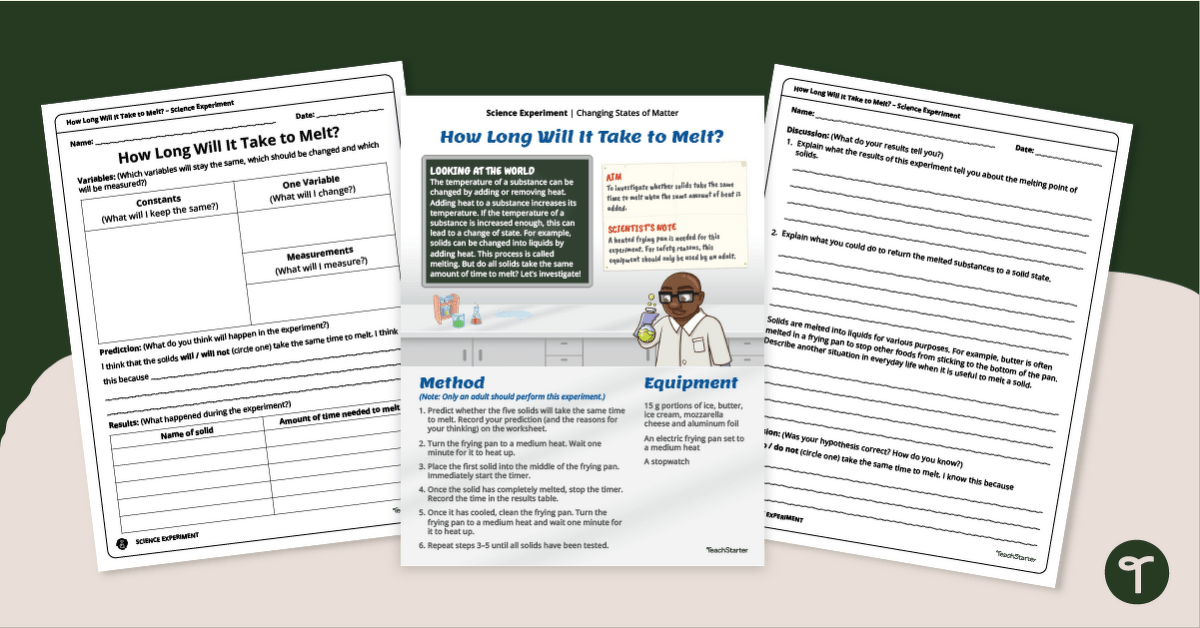

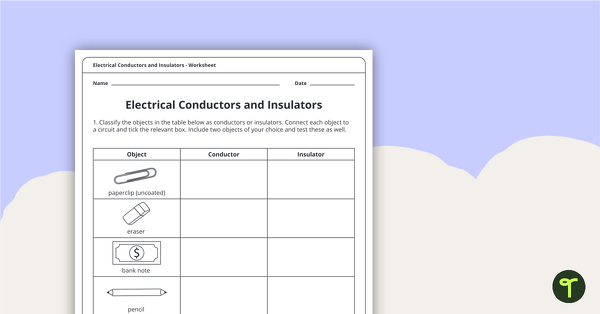
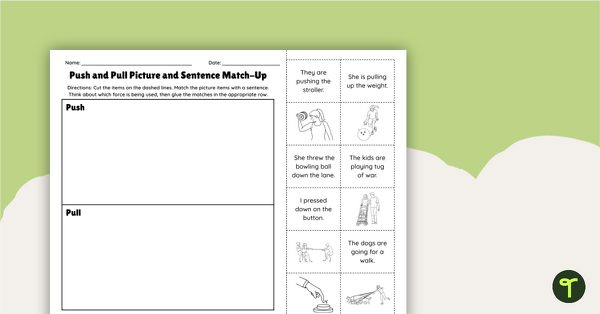
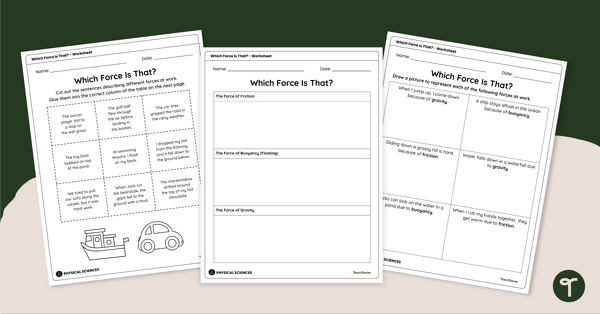
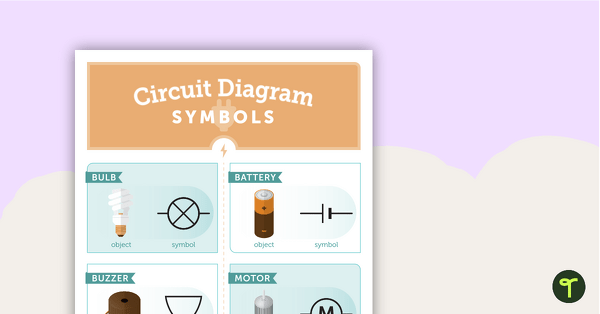
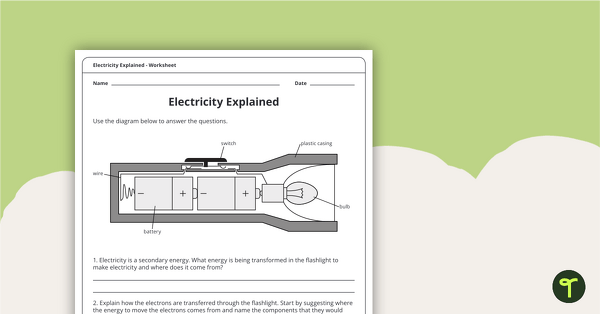
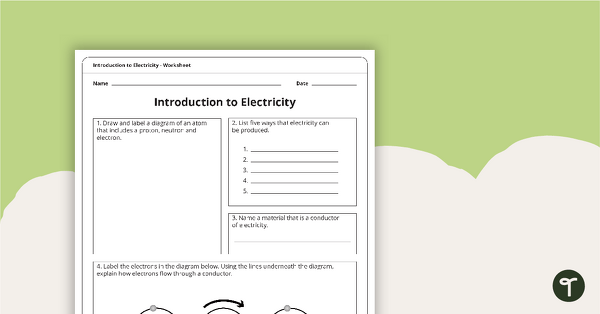
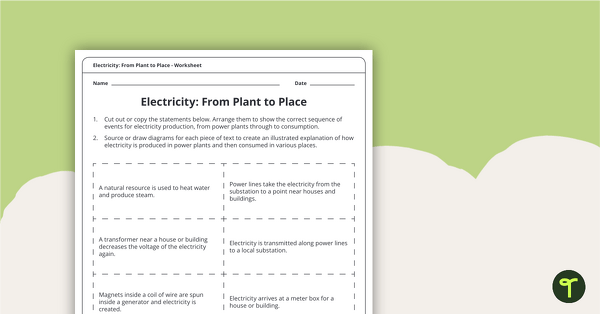
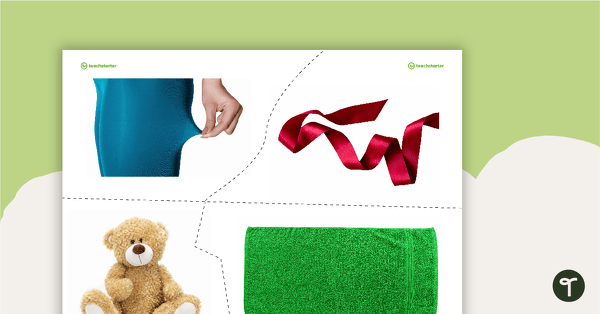
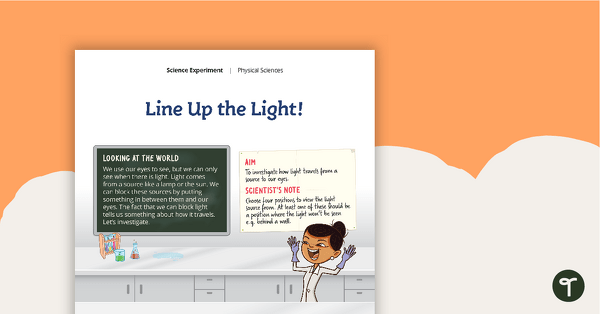
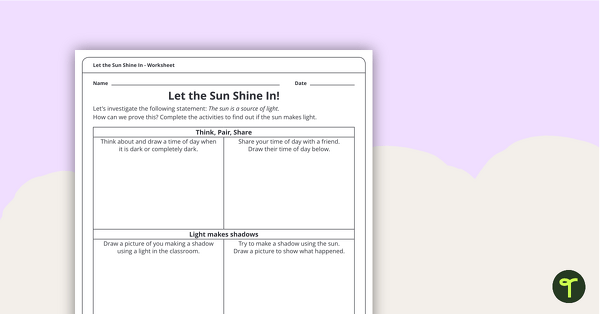
0 Comments
Write a review to help other teachers and parents like yourself. If you'd like to request a change to this resource, or report an error, select the corresponding tab above.